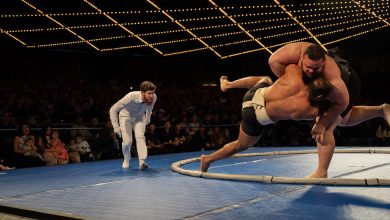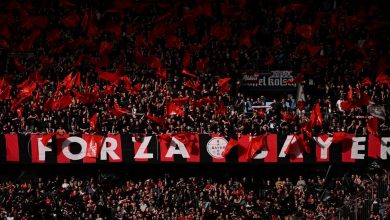Is China’s Soccer Boom Going Bust?

The emails and letters complaining about unpaid salaries have been stacking up for months.
Some claim losses in the thousands of dollars. Others seek to recover quite a bit more. But a few of the pleas arriving at the Zurich offices of FIFA, soccer’s global governing body, like those involving a handful of well-known South American players, are in the millions.
What the FIFA officials collecting the claims have noticed, though, is that a surprising number are coming from one place: players and coaches at clubs in China. And they fear the flow is about to get worse.
China’s top soccer league — not so long ago heralded as the sport’s new frontier thanks to a half-decade of powerful support, ambitious owners and an era of untrammeled spending that lured top players with outsized salaries — is having an existential crisis. Companies that once spent tens of millions to acquire players now cannot pay their bills. China’s president, who once championed the sport, now faces far more serious priorities. And the country’s top division, the Super League, hasn’t played a game in months.
“For sure, some issues like this have happened before,” said David Wu, a sports lawyer in Shanghai. “But not this size.”
Missing Money
The bad news trickled out in waves. In February, China’s defending champion, Jiangsu Suning F.C., was abruptly shuttered by the electronics retailer that owned it, less than four months after the team won the Super League championship.
In the time it took to issue a news release, one of the country’s biggest clubs vaporized, leaving its players unpaid and bringing unwelcome attention to a project that had been one of the cornerstones of President Xi Jinping’s effort to transform China from a soccer backwater into one of its superpowers.
The collapse at Jiangsu now appears to have been a harbinger of further trouble. The league season has been repeatedly interrupted to accommodate the World Cup qualifying schedule of China’s national team, and now will not resume until December. Until then, clubs will have little or no access to their best players.
More recently, doubts have been raised about the continued viability of China’s most successful team, Guangzhou F.C. A cash crunch at its parent company, the real estate conglomerate Evergrande, is so severe that it threatens to contaminate the wider economy.
Last week, the team agreed to part company with its coach, the Italian Fabio Cannavaro, one of the highest-paid managers in world soccer. Officials and players on other teams have also agreed to terminate long-term contracts with the understanding that they will be paid for salaries due.
Fernando Martins and Renato Augusto, two Brazilian stars on the growing list of players who have filed complaints with FIFA, agreed to such a deal, with millions of dollars at stake. Each was released from his contract by their former club, Beijing Guoan, and they expected their first payments in August.
The players say the money never arrived.
Officials at FIFA’s dispute resolution chamber say they are analyzing the facts. They have the power to suspend clubs in any country from registering new signings until they have resolved unpaid salary debts. Some Chinese teams appear to be subject to such bans already: A recent report in China said Wuhan F.C., which is owned by another property group, Wuhan Zall Development Holding Co., has been suspended from acquiring new players.
Yet penalties and transfer bans may not be enough to help others claw back what they are owed. The Brazilian defender Miranda was owed more than $10 million when Jiangsu Suning was closed down. His lawyers face the daunting task of navigating China’s complex legal system in their effort to recover the lost income.
At least Miranda, 37, has been able to continue his career: He quickly landed a spot — and a rich new contract — at São Paulo, a team that plays in Brazil’s top division. Such an outcome is unlikely for the dozens of Chinese nationals who have gone unpaid or been cast off by their clubs in recent months.
Understand China’s New Economy
An economic reshaping. China is enacting new measures to change how business works and limit executives’ power. Driven by a desire for state control and self-reliance, these changes mark the end of a Gilded Age for private business that made the country into a manufacturing powerhouse and a nexus of innovation.
China’s leader, Xi Jinping, is recasting China’s business world in his own image. Above all else, that means control. Where executives once had a green light to grow at any cost, officials now want to dictate which industries boom, which ones go bust and how it happens.
Many measures have already been implemented. The Chinese government has tightened supervision of the country’s internet Goliaths, declared all financial transactions involving cryptocurrencies illegal and detained top executives from troubled companies. Meanwhile, China’s largest developer, Evergrande, is teetering with no word from officials about a bailout.
Evergrande is buckling under extreme debt. Evergrande’s possible failure has exposed the flaws of the Chinese financial system — unrestrained borrowing, expansion and corruption. The company’s crisis is testing the resolve of Chinese leaders’ efforts to reform as they chart a new course for the economy.
What China does next will be significant. If Chinese officials save Evergrande, they risk sending a message that some companies are still too big to fail. If they don’t, as many as 1.6 million home buyers waiting for unfinished apartments and hundreds of small businesses, creditors and banks may lose their money.
The long-term outlook is unclear. Some analysts say Mr. Xi’s measures and the push to curb excess borrowing have already made a big difference. But the world’s No. 2 economy is slowing, and the Chinese government may have to work harder to rekindle it.
“These are players that have very little access to the international market,” said Jonas Baer-Hoffmann, the general secretary of FIFPro, the global players’ union. “If their clubs go bankrupt, the chance to find work as a footballer is very slim. So it effectively puts them out of work.”
An Altered State
The prospects for the Chinese league are unclear. The market for top-shelf foreign players, and their willingness to go to China amid the stories of unpaid wages, has vanished. And the fates of the clubs and others who work in China’s soccer economy remain at the whim of capricious local soccer officials, who are known for frequently and abruptly changing the rules, and the financial health of the league’s primary investors, typically real estate businesses, which has led the league to be known colloquially as the real estate league instead of the Super League.
The days of eye-popping paydays are surely over. Carlos Tevez, a striker, once earned $40 million for a single unproductive season from Shanghai Shenhua, a team owned by the real estate company Greenland Group. Top Brazilian players like Hulk and Oscar received breathtaking paydays, but others cashed in as well: At one point, the salary of Darío Conca, a little-known Argentine striker, reportedly made him the third-highest-paid player in the world.
In recent years, the league has attempted to restrain rampant overspending by issuing new rules, including a tax on imports and limits on foreign players. It also introduced regulations this season that barred companies from tying their brands to those of the teams they owned, forcing businesses like Evergrande and Greenland to grudgingly rename their clubs.
“This is a very bad situation, and it will take some time to adjust,” Wu, the sports lawyer, said.
Adding to the league’s ills is the uncertainty that hangs over its schedule. In July, the national federation announced it would reduce the number of match rounds to 22 from 30 — another blow for teams desperate for revenues — and adjust schedules to accommodate the requirements of the national team’s qualification campaign for the 2022 World Cup.
“If a league is so malleable that it can just stop and start according to the national team schedule, you can see where priorities lie,” said Zhe Ji, the director of Red Lantern, a sports marketing company that works in China for top European soccer teams. “It certainly doesn’t lie with the league anymore.”
China has qualified for the World Cup only once, in 2002, only to lose all three of its games without scoring a goal. Building a competent national team that does more than merely qualify for future tournaments remains a key component of China’s blueprint for soccer, and the Super League’s investments in foreign players, foreign coaches and lavish facilities had been seen as a way to supercharge that.
But for all its spending, for all the hope that the new arrivals would lift the quality of domestic players, the results have been disappointing. The national team lies just off the bottom of its World Cup qualifying group, having lost two of the three games it has played so far.
“I would stick my neck out and say it’s even worse than before,” Ji said.



